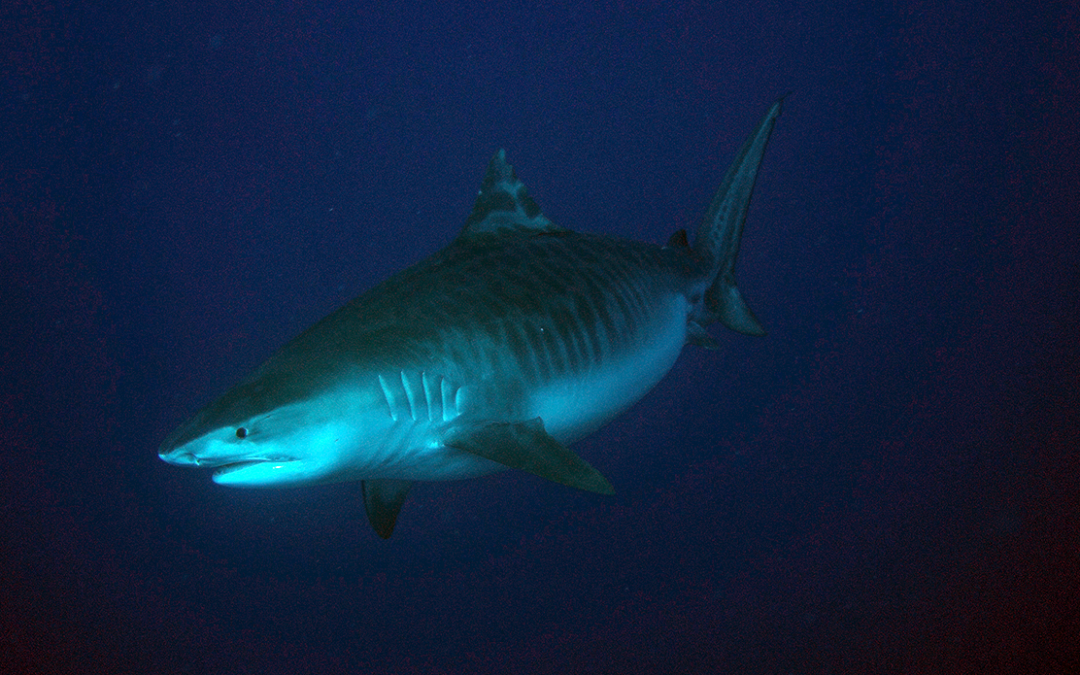Photo: Jeremy Lanfranchi//Unsplash

The International Shark Attack File (ISAF) has released a report detailing 2023 shark attack numbers. The report shows a notable uptick in the number of unprovoked shark attacks, as well as the number of those attacks that were fatal. In fact, 2023 was one of the deadliest years for shark attacks in the last decade.
The ISAF report focuses only on “unprovoked” encounters, meaning those in which a shark is in its natural habitat and attacks without any human provocation (human-prompted encounters, such as those that occur as a result of intentionally approaching a shark or swimming in an area where bait is being used to lure fish, accounted for an additional 22 attacks). The reasoning behind this is that unprovoked bites are the most useful for studying how sharks behave. “We’re biologists, and we want to understand the natural behavior of the animals — not the unnatural behavior,” said Gavin Naylor, director of the Florida Museum of Natural History’s shark research program.
While the total of 69 unprovoked bites in 2023 is almost 10 percent higher than the previous five-year average of 63 attacks, the ISAF asserts that this is not necessarily a cause for alarm. “This is within the range of the normal number of bites, though the fatalities are a bit unnerving this year,” explained Naylor.
Those “unnerving” fatalities accounted for 10 of 2023’s unprovoked attacks, up from five the year before. Even more alarming for Australians, the country was the site of 40 percent of the fatalities, despite accounting for only 22 percent of total attacks. Three of those fatalities occurred in one region: the Eyre Peninsula, located off the coast of southern Australia.
Unsurprisingly, the other most at-risk group was surfers, who experienced 42 percent of bites worldwide. The next largest cohort of victims were swimmers and waders, who came in a close second at 39 percent. “If a white shark is going after a seal and the seal knows it, the white shark hasn’t got a chance,” Naylor said. “Seals are really agile, so the only ones that get caught are the ones that are goofing off and flopping around on the surface minding their own business. And that’s kind of what a surfer looks like.”
However, though the numbers may sound alarming (particularly for Australian surfers), the ISAF stressed that shark encounters are still exceedingly rare. They also clarified that the increase in encounters does not necessarily mean that sharks are more dangerous than before, but rather correlates with human populations. Increased activity in shark habitats leads to an increase in the number of animal encounters.
That being said, the ISAF did also provide recommendations for avoiding a shark encounter. They advised staying close to shore, not swimming at dawn or dusk, and avoiding excessive splashing.
Founded in 2010, The Inertia is the definitive voice of surf and outdoors. They approach the natural world and its devoted culture with curiosity, optimism, and respect. They take pride in bringing their passion for the oceans and mountains to life through original films, reporting, and monumental gatherings. They aim to make a positive impact on the planet through partnerships with nonprofits working hard to preserve earth’s sacred places. Be sure to visit The Inertia website to view valuable Surfing and Outdoor related News and Resourceful Articles regularly.
If you are not yet a BRA Retail Member, you can easily opt in to either Regular (no cost) or Distinguished ($100/yr.) Membership via this super simple join form

